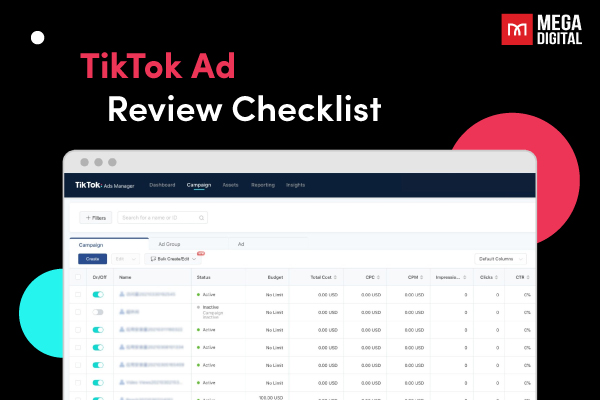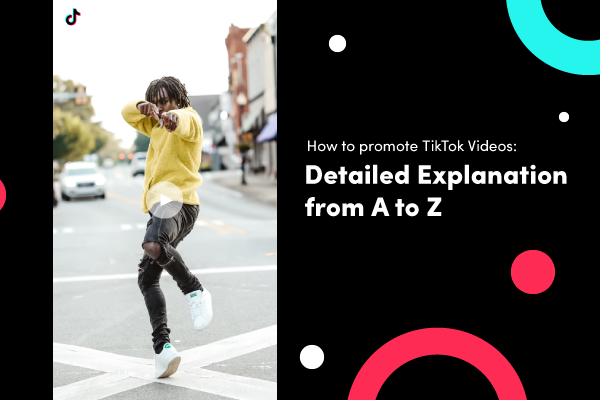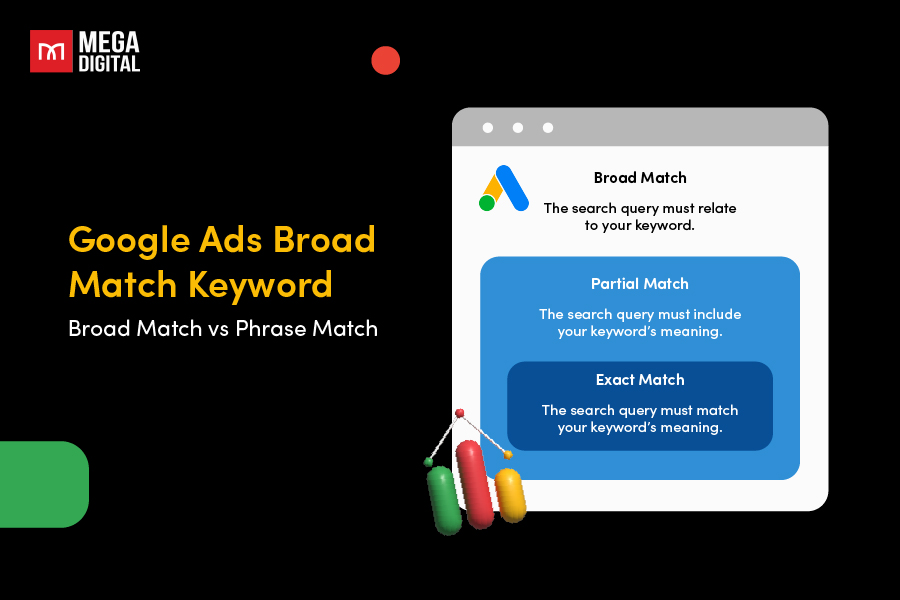Exact match keywords are those that mirror the search query a user enters into a search engine. Simply put, when a user looks up for a specific phrase, say “handcrafted leather wallets”, and your content mirrors that exact wording, it’s an exact match. With Google exact match, you’re reaching an audience truly interested in your offerings.
- What does Exact Match Keywords mean?
- Google Exact Match in the past
- Pros and Cons of Exact Match Keywords
- What’s the difference between Exact Match Keywords and other Match Types?
- How to use Exact Match Keywords
- When to use these match type?
- Best Practices for this match type
- Common Mistakes to Avoid with Exact Match
What does Exact Match Keywords mean?
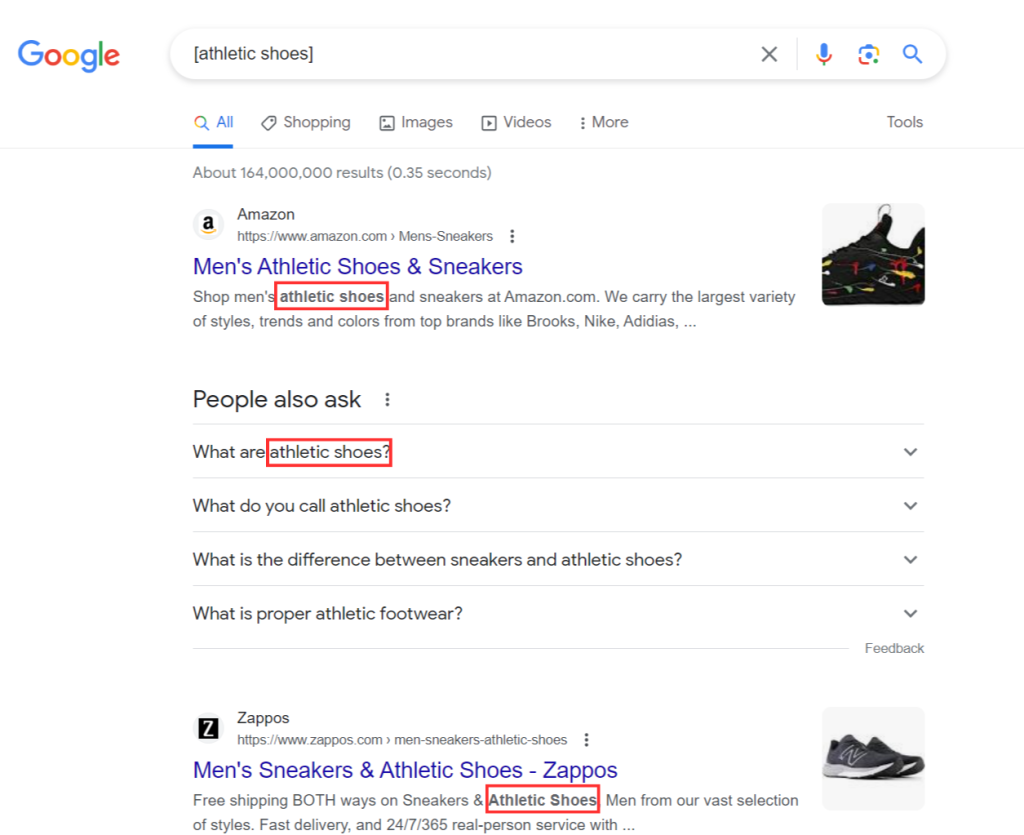
As a keyword match type, Exact Match Keywords empower you to display ads precisely when users perform searches with the same meaning or intent as your chosen keywords. This level of control ensures that your message resonates with a highly targeted audience, encompassing variations like:
- Misspellings
- Singular/plural forms
- Stemming
- Abbreviations
- Accents
Exact match keywords symbol: Recognizable by the syntax within square brackets (e.g., [shoes for men]).
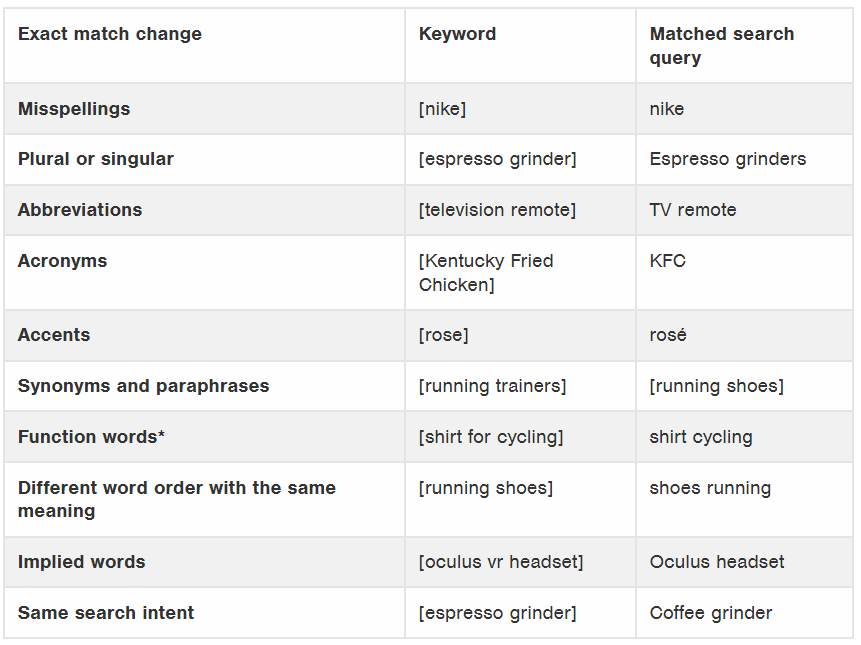
Note: Function words encompass articles (e.g., “the”, “a”), prepositions (e.g., “in”, “on”, “at”), conjunctions (e.g., “and”, “but”, “or”), and pronouns (e.g., “he”, “she”, “it”). These words play a structural role in sentences without carrying substantial individual meaning.
Whether a user looks up “jogging sneakers” or “footwear for running”, the essence remains constant—they seek running shoes. Exact match keywords serve as the bridge, connecting your business with users despite slight search variations, eliminating the need for exhaustive keyword lists.
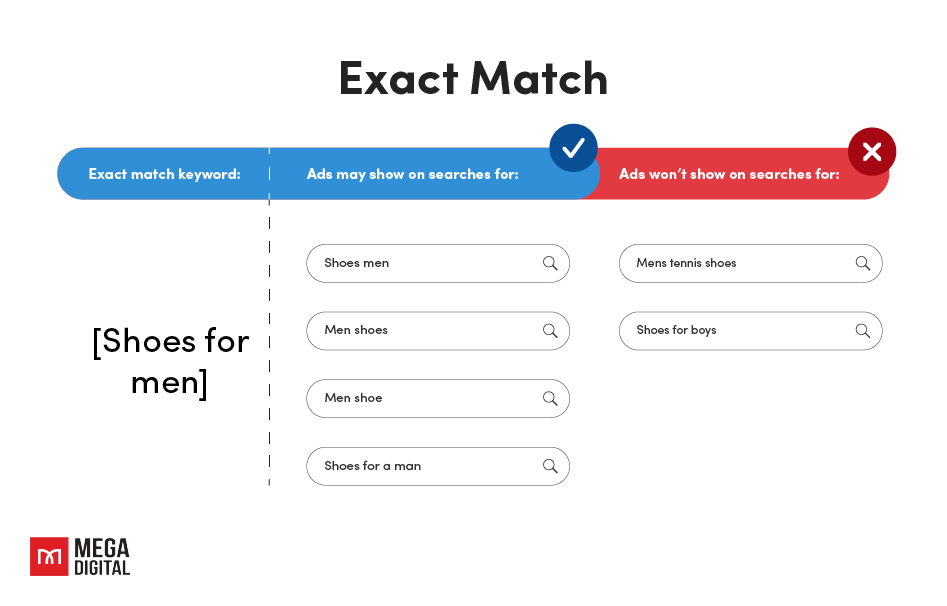
Note: This definition only applies to positive keyword targeting. Negative exact match keywords operate distinctively compared to exact match keywords. You can read more about negative keywords through our other guide.
Google Exact Match in the past
At first sight, it seems like a very simple concept: Your ad appears only when someone searches using the exact words you’ve specified. The alignment required, akin to the exact word order, elevates the precision of this keyword type.
But is it really that simple? In fact, for the past years, Google has been changing the algorithm quite constantly.
- In 2012: Google introduced close variant keyword matching, gaining traction for its ability to connect users with relevant businesses, despite slight variations in their search queries.
- In 2014: The tech giant has been refining the way exact match operates, recognizing the imperfections in user queries, including misspellings and typos. This intuitive approach, expanded in 2017, resulted in increased keyword coverage and valuable opportunities, minimizing the need for exhaustive keyword lists.
- In 2018: The keyword matching took a new turn. The definition broadened to encompass close variants that shared the same meaning, embracing synonyms, paraphrases, and results with the same implied intent.
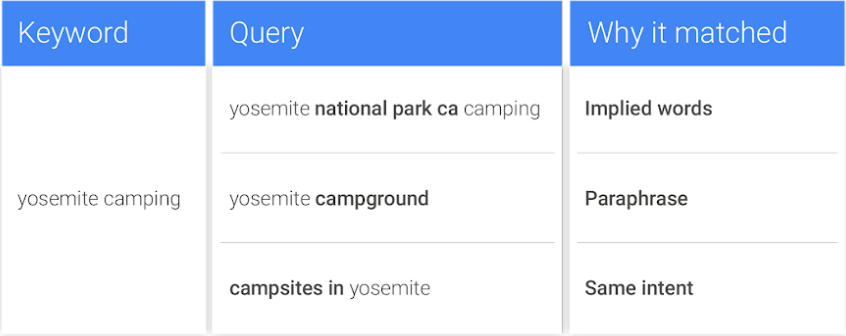
This shift marked the third act in the transformation of exact match keywords, signaling a departure from the traditional notion.
For example, imagine bidding on the exact match keyword [coastal retreat] and anticipating matches with phrases like “coastal getaway in California” or “beachfront campsites”. Google, with its advanced algorithms, recognizes the shared intent behind these searches – a desire for a coastal camping experience.
You should keep in mind that the way Google Exact Match operates is not always constant, so opt for a flexible way of using this matching type, as we’ll explore further in this guide!
Pros and Cons of Exact Match Keywords
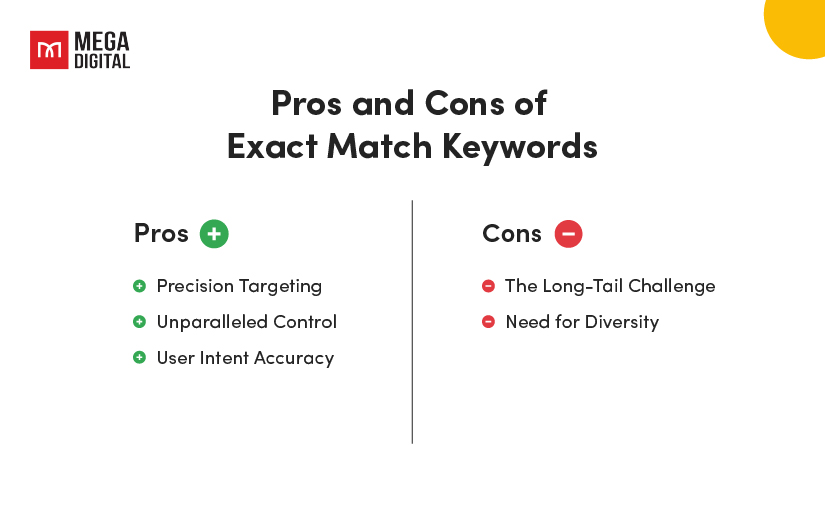
Pros of Google Exact Match
- Precision Targeting: Exact match keywords ensure your content appears only when user searches precisely match your designated keywords.
- Unparalleled Control: Gain maximum control over online visibility, reaching a highly targeted audience.
- User Intent Accuracy: Capture the essence of user intent with accommodation for variations like misspellings and singular/plural forms.
Fun fact: Underground Elephant once shared with Google:
“Since implementing this feature with one particular client, we’ve seen exact match keyword clicks in their account increase by 150%, with these additional clicks costing 10% less”.
Cons of Exact Match Keywords
- The Long-Tail Challenge: While Exact Match excels in precision, it may miss out on valuable traffic from longer, highly-intent search queries known as the “long tail”. For more inquiries, you can see this forum post in Google Help Center.
- Need for Diversity: Sole reliance on single-word Exact Match keywords may limit your exposure to the diverse landscape of potential customers.
What’s the difference between Exact Match Keywords and other Match Types?
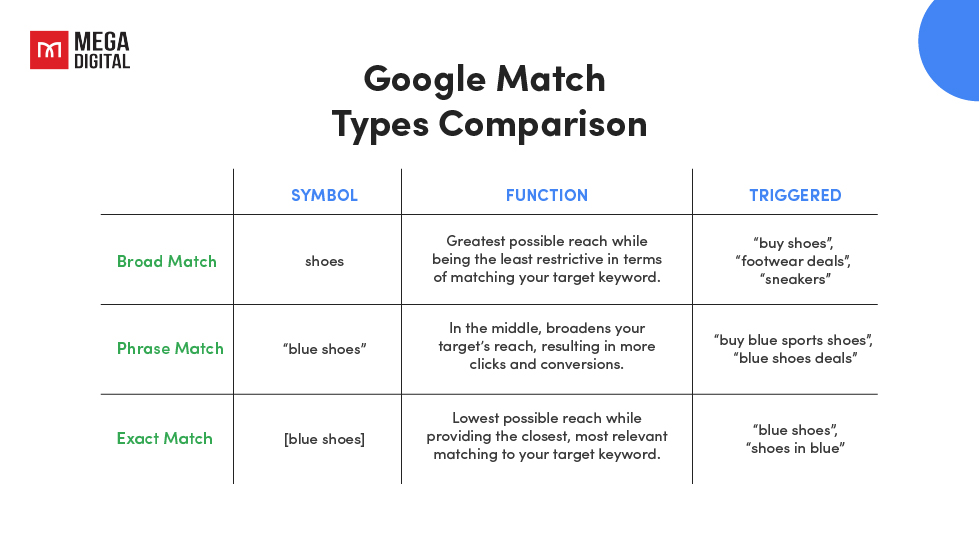
As you already know, in the world of advertising, the choice of keywords can make or break your campaign’s success. While Broad Match and Phrase Match options offer expansive reach, they come with certain drawbacks compared to Exact Match – potential exposure to irrelevant queries.
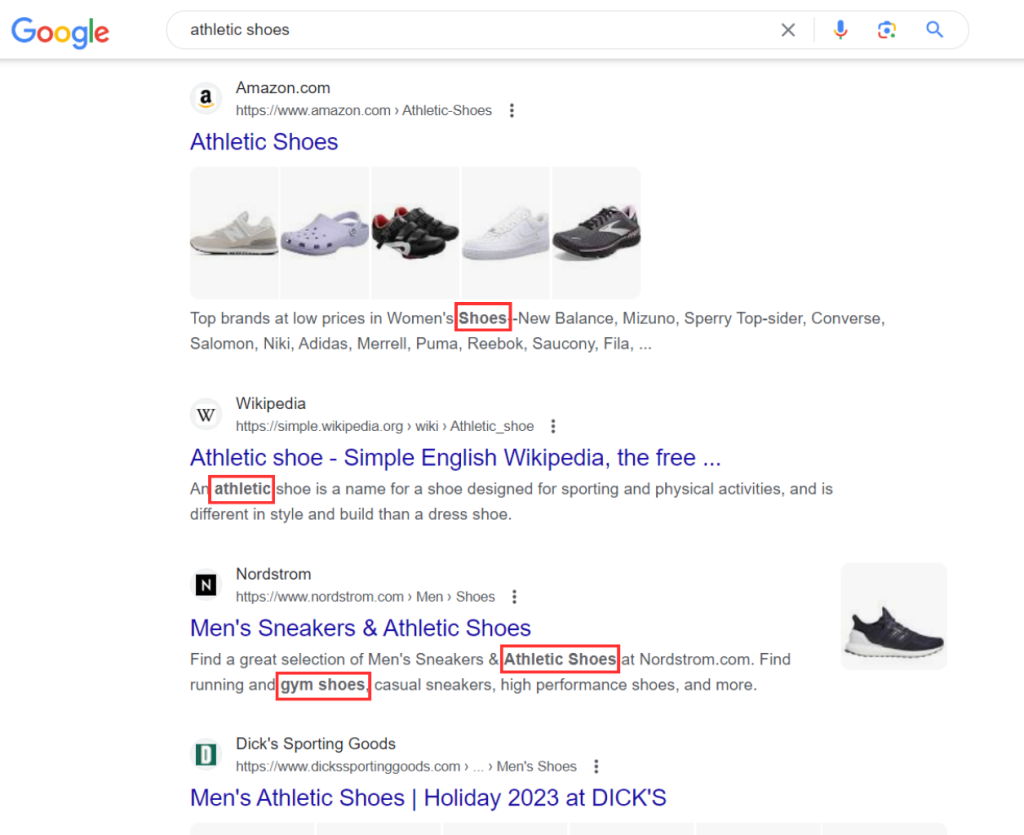
For example, keywords with no syntax, which belong to the Broad Match type, result in a much more diverse search result.
Let’s take a look at the comparison tables of these Google keyword match types to see where exact match keywords come in handy:
Compare Exact Match Vs. Broad Match
| Aspect | Exact Match | Broad Match |
|---|---|---|
| Goal | Precise Targeting | Wide Coverage |
| Syntax | [Square brackets] | None |
| Matching Criteria | Matches search queries exactly as specified | Matches variations, synonyms, and related searches |
| Relevance | Offers higher relevance and specificity | Provides broader reach, capturing diverse queries |
| Traffic Quality | Ensures limited but more qualified traffic | Attracts a larger but potentially less targeted audience |
| Exposure | Reduced impressions, higher relevance | Increased impressions, potentially lower relevance |
| Campaigns | Ideal for specific campaigns with clear keywords | Useful for broad campaigns, increased exposure |
Picture Exact Match keywords as your precision-guided missile, hitting the bullseye with targeted accuracy, while Broad Match casts a wide net, capturing a broader audience.
It’s not about declaring a winner; it’s about understanding which strategy suits your unique needs. Weigh the options, and let your keyword strategy align with your campaign goals.
Compare Phrase Match Vs. Exact Match
| Aspect | Phrase Match | Exact Match |
|---|---|---|
| Goal | Balanced Approach | Precision Targeting |
| Syntax | “Quotation marks” | [Square brackets] |
| Matching Criteria | Matches search queries with specified phrase | Matches search queries exactly as specified |
| Relevance | Balances specificity with a broader reach | Offers the highest relevance and precision |
| Traffic Quality | Captures a broader audience while maintaining relevance | Ensures limited but highly qualified traffic |
| Exposure | Moderate impressions with a balanced approach | Lower impressions but with higher relevance |
| Campaigns | Suitable for campaigns with semi-specific keywords | Ideal for campaigns demanding exact keyword matches |
Distinguish between Phrase Match Vs. Exact Match can seem trickier than the other pairs as these two do share more traits in common.
As mentioned, Exact Match brings unparalleled precision, ensuring your ads appear only for the exact terms specified or terms with the same intent.
On the other hand, Phrase Match offers a bit more flexibility, allowing for ad display on searches closely related to the specified phrase, even if additional words are present.
Both approaches have their place, offering varying degrees of targeting and reach based on your specific campaign objectives and audience preferences.
How to use Exact Match Keywords
Step 1: Go to your Google Ads Account
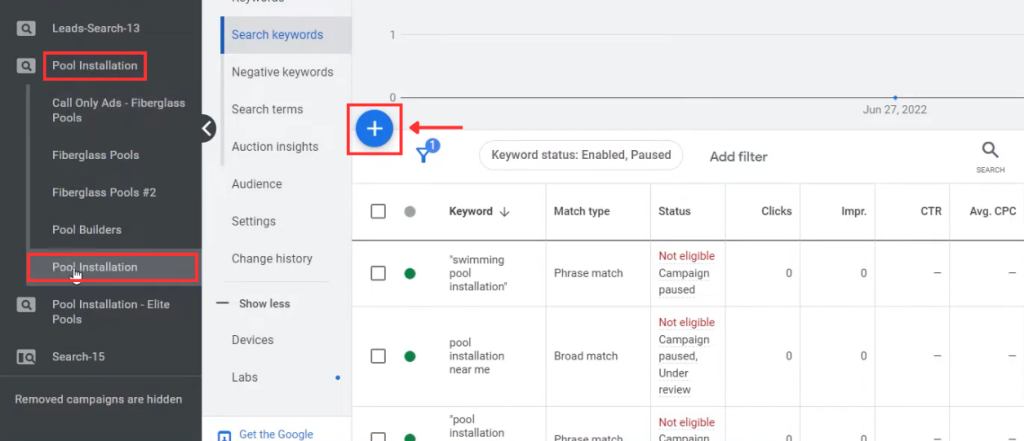
Go to your Google Ads account and hit on the campaign you want to add the keywords.
For example, in the campaign named “Pool installation”, you want to add keywords related to pool installation. Click on the Ad Group > Keywords > Search keywords. Then click on the blue plus icon to open the Add Keywords box.
Step 2: Open the Add keywords box
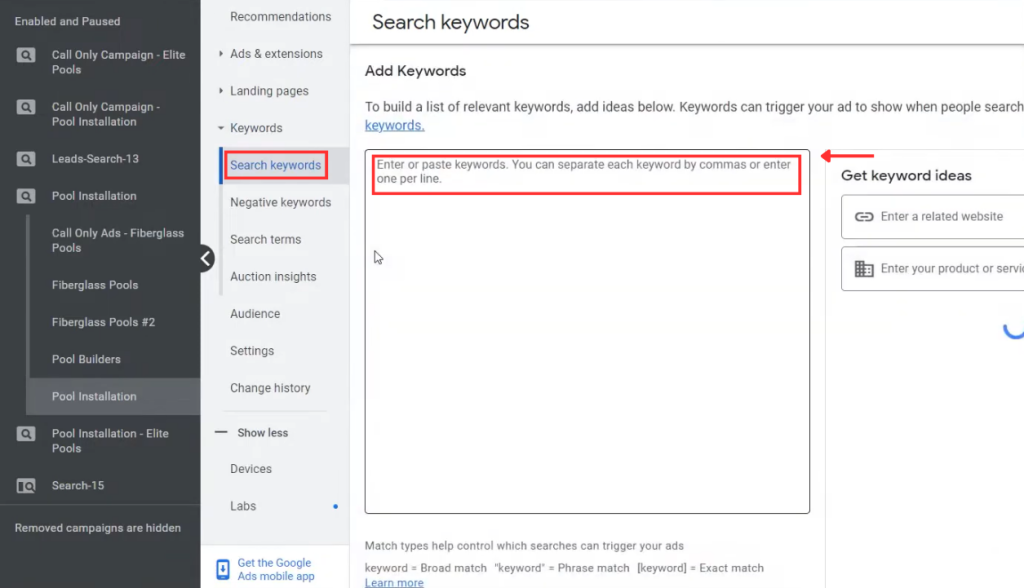
Before inputting the keywords in the box, I suggest you go to the Keyword Planner to get more keyword recommendations.
Step 3: Build a list of relevant keywords through Keyword Planner

Once the Keyword Planner pops up, hit “Discover new keywords”. Now, type in your main exact keywords. What keywords do you want to focus on?
For example, I want to find recommendations for “pool installation companies near me”, which is a long-tail keyword and the target searchers have a clear intent. After typing in the phrase, click on “Get results”.
Note: Remember to check the selected geography to ensure it’s your right location; otherwise, the data provided won’t be as accurate. Knowing the right CPC (Cost-per-click) will help you make effective advertising decisions.
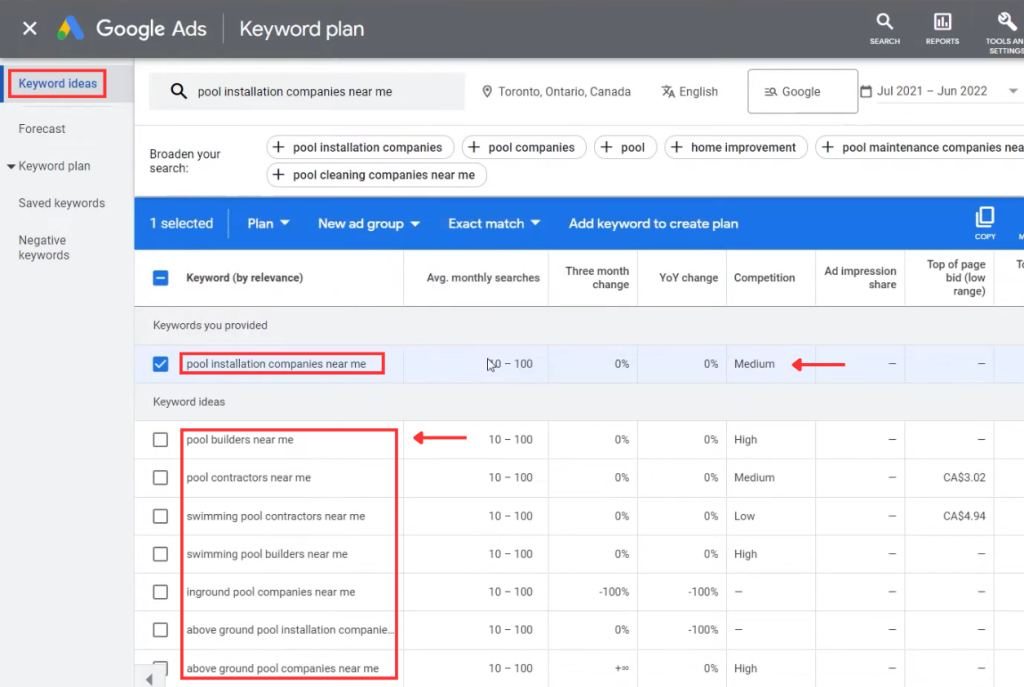
Now, Google Ads has provided a bunch of keyword ideas. Look through the list and decide which are suitable for your ads. You can see the stats here such as the “Avg. monthly searches”, which is an important indicator for whether you should pick the keywords or not.
Note: Other stats to consider are the Top of page bid’s high and low range. It means how much people are paying to be at the top of SERP to show their ads. That gives you an idea of how much you’re expected to spend for clicks when you run your ads.
Step 4: Include the keywords in the square brackets
After you have picked out your preferred keywords, put them in one place and wrap them with [square brackets] – the syntax for Exact match keywords.
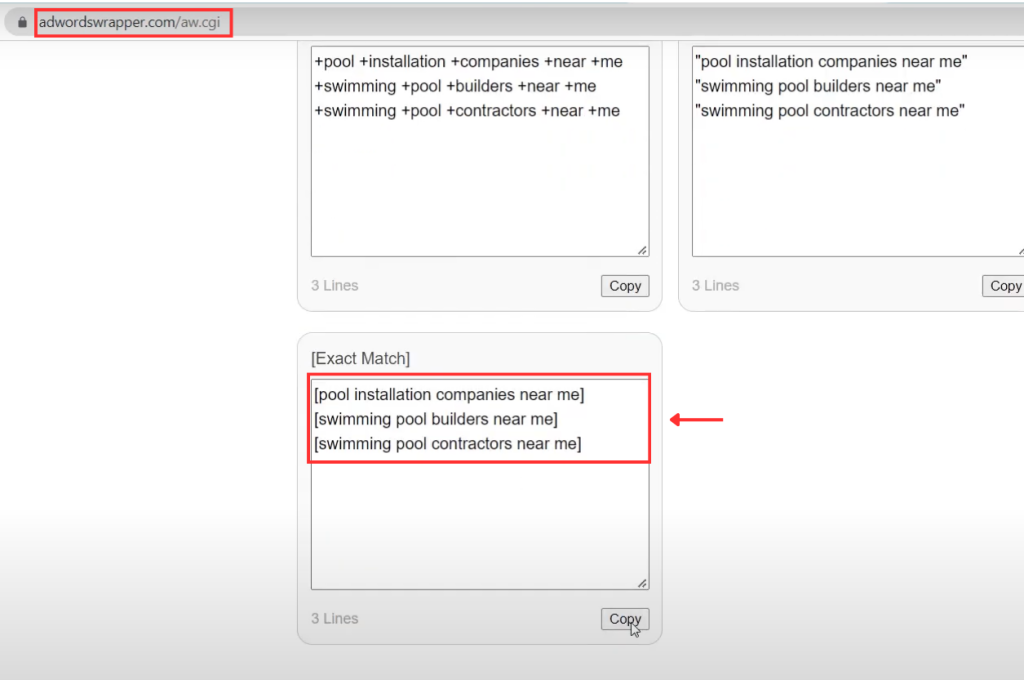
After you have copied all of the needed keywords, paste your wrapped list in the Search keywords input bar. Once this is done, click “Save”.
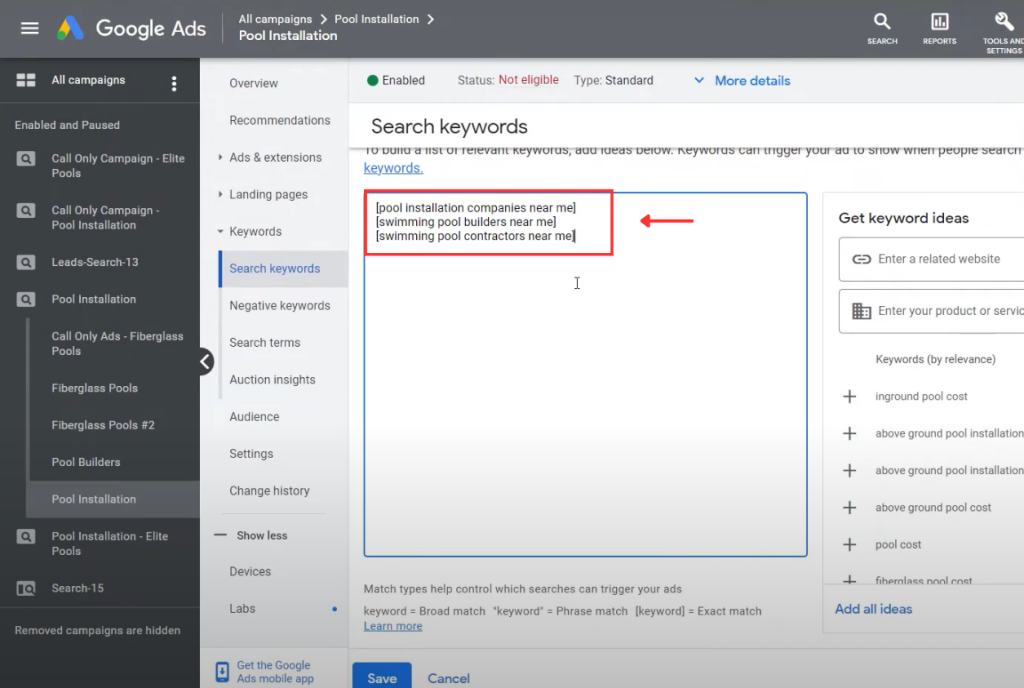
Step 5: Check your Campaigns
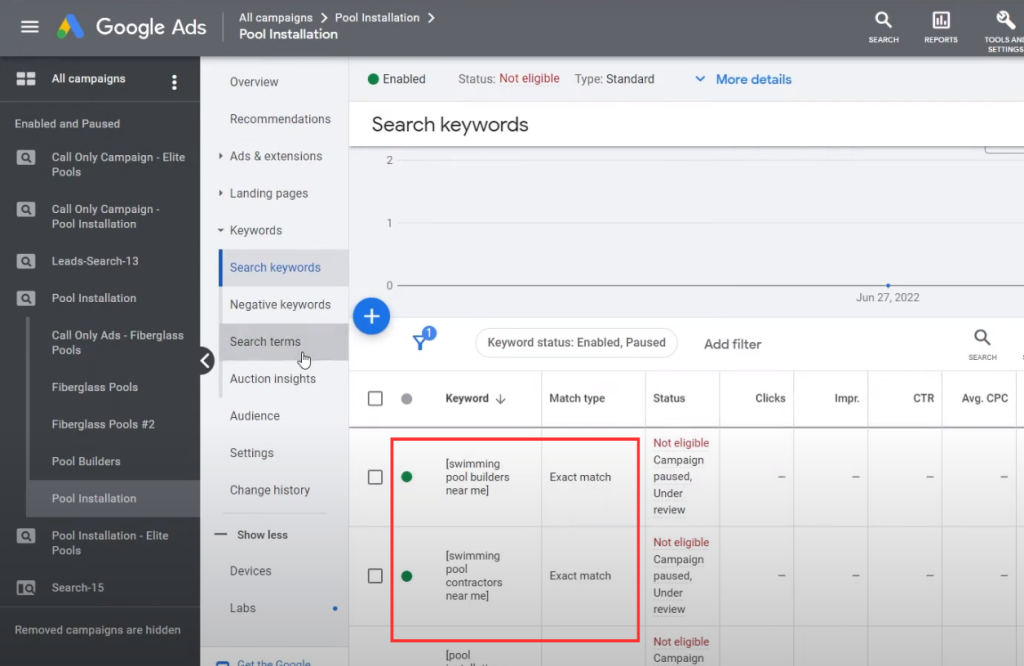
Now, you can see all the chosen exact match keywords are added to your campaigns. You’re good to go!
Note: After a week or two, check your keywords again by going to the “Search terms”. Find the ones you want to appear and the ones you don’t want to appear. Those you don’t want will be the negative keywords and you may click on “Negative keywords” > Plus icon to add them to the list.
When to use these match type?
Service-based businesses
For service-based businesses, Exact Match keywords are the real MVP, especially if your ad budget is in the ballpark of zero to twenty grand. They’re like the secret sauce – delivering high conversion rates and keeping your cost per lead on the down-low. Especially if you want to get leads over the phone or through email.
That being said, if you have a massive ad account, exact match is going to be time-consuming and you won’t be able to hit up every keyword on your wishlist. In that case, I suggest you use Phrase Match to be more effective.
E-commerce (Small businesses)
You can also use Google exact match for small product industries, especially if you’ve got a niche product that doesn’t pop up in every other search. In this scenario, you can build out ad groups and stuff around these products to generate a high conversion rate and good profit margin for your online product.
But hey, if you have a medium to large account, the exact match can be a little difficult, I suggest moving towards phrase or broad match. That’s when you might want to shift to phrase or broad match – they’re like the versatile options in your toolkit that can handle the heavy lifting and still get you solid results. It’s all about finding that sweet spot and making your ad game strong!
Best Practices for this match type
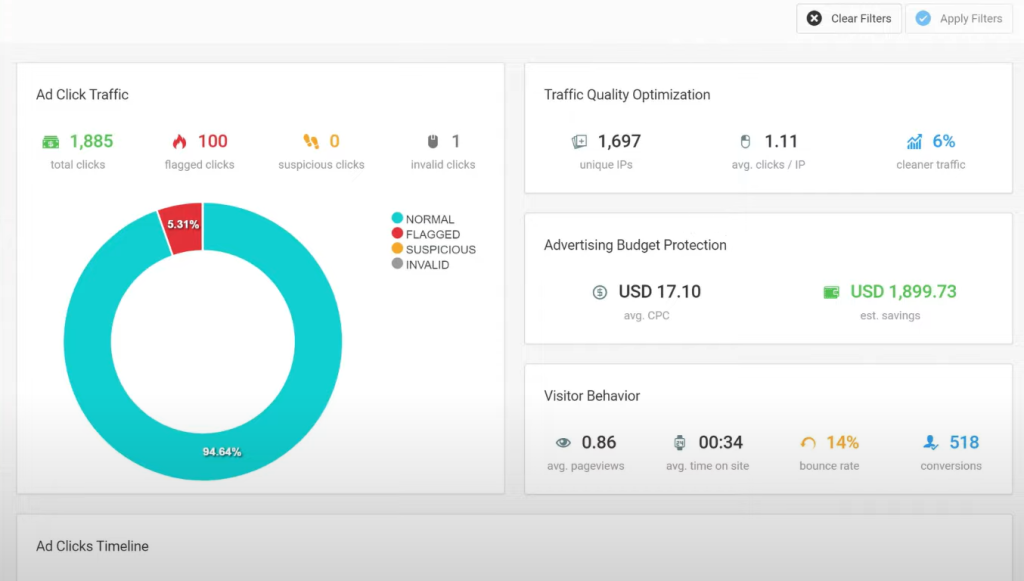
Now, here’s the insider scoop – the secrets come straight from the trenches of running campaigns for our clients at Mega Digital. So, how do we optimize Google Ads campaigns with the use of Exact Match keywords?
#1 Laser Focus on Keywords
- “Exactitude” is Key: From our hands-on experience, Exact Match is all about precision. Choose keywords that mirror the exact words your audience might use to search for your offerings. You might use Google Keyword Planner for suggestions.
- Strategic Placement: Where you put these golden keywords matters. Sprinkle them in your titles, headers, and ad copy – make Google recognize your content as the go-to answer for user queries.
#2 Keyword Brilliance for Optimal Results
- Quality Over Quantity: Forget the keyword buffet. Exact Match is your gourmet meal. Handpick keywords that are not just relevant but are the crème de la crème of your offerings.
- User-Friendly Language: Sure, Google’s algorithms matter, but so does the language your audience speaks. Craft ad copy that resonates with them while seamlessly integrating those exact match keywords.
#3 Adapt and Optimize
- Stay in Step with Algorithms: From the experience of navigating numerous campaigns, Google’s algorithms love to tango. Be ready to adapt and optimize your exact match strategy to keep up with the latest moves in the dance.
- Constant Testing: The digital world is your playground. Test different variations of your exact match strategy to discover what strikes a chord with your audience. It’s about constant improvement. As instructed above, you may re-check your keyword terms after you have run your campaigns for a while.
You’ve got the lowdown on the best practices for Exact Match keywords, go ahead, be confident to run your ad campaigns, and watch them grow. Remember, it’s not just about visibility; it’s about precision, relevance, and making every click count.
Common Mistakes to Avoid with Exact Match
Now that you have been introduced to the do’s, let’s not forget the don’ts of exact match keywords as well. Get yourself familiar with the common slip-ups when incorporating this match type into your Google ad strategies.
Overlooking the Power of Variations
Exact Match is like a gourmet dish – but don’t stick to just one flavor. Ignoring variations and synonyms means missing out on a buffet of potential traffic. Spice up your keyword game!
Neglecting User Intent
It’s not just about impressing the Google bots; it’s about wowing your audience. Neglecting user intent in the pursuit of exactness can lead to a disconnect. Craft content that speaks to your audience, not just to algorithms.
Quality Overload
Sure, it is about precision, but stuffing your content with keywords is a one-way ticket to the penalty box. Balance is key – weave your words seamlessly into the narrative for a natural, reader-friendly experience.
Conclusion
As I wrap up this article, keep in mind: precision is power. Leveraging Exact Match Keywords isn’t just about visibility; it’s about crafting a targeted strategy that resonates with your audience’s intent.
If you’re aiming for your Google Ads success, keywords can serve as an instructor, leading you to relevance, visibility, and conversions. Subscribe to Mega Digital for more comprehensive guides relating Google Keywords and other interesting advertising insights.







